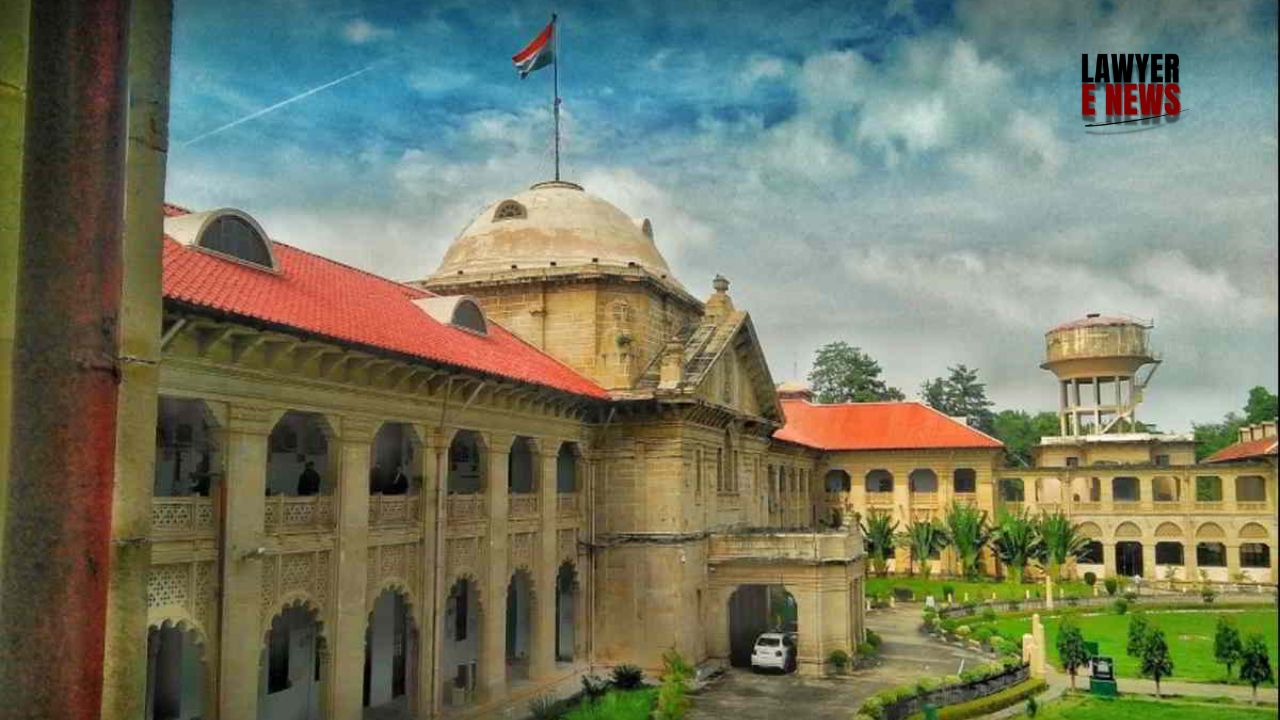-
by Admin
15 February 2026 5:01 PM



High Court criticizes the university’s failure to follow due process and uphold principles of natural justice in handling the case of alleged answer sheet manipulation.
The Allahabad High Court, in a recent ruling, imposed a cost of ₹2 lakh on Lucknow University for its gross negligence in handling the case of Priyanka Dubey, a B.Sc. student whose examination results were withheld due to unsubstantiated allegations of answer sheet manipulation. The Court, in its judgment, highlighted the university’s failure to adhere to the principles of natural justice, leading to significant detriment to the student’s academic and professional future.
Priyanka Dubey, a student in her third year of B.Sc. at Lucknow University, appeared for her examinations in 2009. However, her results were withheld on allegations that her answer sheets in six subjects had been manipulated. Despite multiple attempts to resolve the issue, no official order was communicated to her regarding the alleged misconduct until a show cause notice was issued in February 2010. Dubey responded to the notice, denying all allegations. However, the university failed to communicate the outcome of the inquiry for over two years. When a decision was finally made in May 2012 to cancel her 2009 exams, it was never communicated to Dubey, preventing her from appearing in subsequent examinations. It was only after Dubey filed a writ petition that the university’s decision came to light.
The High Court, presided over by Justice Alok Mathur, strongly criticized the university for conducting the inquiry in violation of the principles of natural justice. The Court noted that despite issuing a show cause notice, the university did not provide Dubey with the necessary materials, such as copies of the answer sheets or the inquiry report, which were crucial for her defense. The Court remarked, “Mere possibility can never be a substitute for coming to a definitive conclusion,” and held that the university’s actions were based on mere presumption rather than concrete evidence.
The Court further emphasized that the non-communication of the order dated May 21, 2012, rendered it non-est (non-existent) in law. Justice Mathur referenced precedents set by the Supreme Court, stating that an administrative order must be communicated to the affected party to be legally enforceable. The failure to inform Dubey of the order not only deprived her of the opportunity to appeal but also effectively barred her from continuing her education, thereby “ruining her career.”
The judgment underscored the importance of due process in administrative proceedings, particularly in educational institutions where the future of students is at stake. The Court ruled that the university’s actions were arbitrary and illegal, and that the subsequent order issued in November 2014, which upheld the cancellation of Dubey’s exams, was also invalid since it was based on the earlier non-communicated and illegal order.
Justice Mathur, in a critical observation, stated, “The action of the Lucknow University in not only [being] in violation of the principle of natural justice but has [also] a deleterious effect on the future of the candidate and such an action is deplorable.” He further added, “The manner of conducting the inquiry by the Lucknow University in the present case was clearly illegal and arbitrary.”
The Allahabad High Court’s decision serves as a stern reminder to educational institutions about the necessity of upholding procedural fairness and the principles of natural justice in administrative matters. By imposing a significant cost on Lucknow University, the Court has sent a clear message about the consequences of negligence in handling the careers of students. This ruling is likely to impact how universities across the country manage allegations of misconduct and underscores the judiciary’s role in protecting the rights of students.
Date of Decision: July 10, 2024.
Priyanka Dubey v. State of U.P. & Ors.
